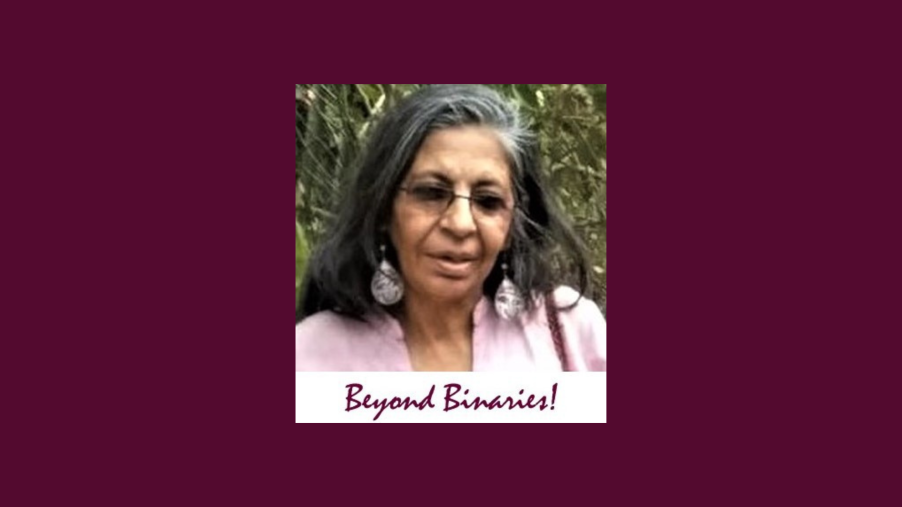
By Paramita Banerjee
The term ‘gender’ held little meaning for me beyond the English grammar book until I was a 20-year-old undergraduate student and a committed activist. Growing up in an upwardly mobile middle-class Bengali academic family, I was not well acquainted with gender discrimination. Of course, in retrospect, I do question a lot of the normative practices in my natal family. But as a child transitioning to adolescence and adulthood, I hadn’t yet learnt to formulate those questions.
It was just me and my sister. So, there was no opportunity for us to experience the discrimination between sons and daughters that many Indian children grow up with. Of course, one can face gender discrimination when there’s no male sibling — but to be fair to my parents, I’ve never ever felt that they were unhappy about not having a son. In fact, it was quite the contrary. I grew up with my father always telling everyone that my sister and I were his good luck charms.
There was an important cultural shift involved in this behavior. Daughters are burdens by definition, not just in India, but in much of south and southeast Asia. I’ve learned that through my work experience. To celebrate daughters as the harbingers of family fortune is a sharp departure from tradition. Usually, not having a son is something to mourn, for it traditionally means the end of the family line. My father, despite his own rural upbringing, steadfastly refused to tow that line. He was always quite vocal about asserting that any child, irrespective of the gender, signifies continuity. That’s another significant defiance on his part of the dominant consensus on gender roles. These unorthodox positions of my father must have given me a sense of gender equity in my growing years. Not that I was conscious of it at that point in time.
In fact, back then, I was a naughty, daredevil child. I was up to all sorts of pranks all the time. So, I got punished every single day — both at home and in school. But in all those monkeying years, neither my parents nor my teachers ever said that I shouldn’t be so naughty because I was a girl. The absence of that ‘because I’m a girl’ bit is singularly important.
What I’m trying to say is that the real-life experience of gender injustice is highly contextual. It’s a mistake to draw a single line across the board. Not everyone faces gender discrimination in the same way as they grow up. It is critical to understand this complexity if we aim to address gender justice effectively. If anyone tried to talk about son preference to me when I was, say, 14 or 15, they’d have to find a narrative different from the predominant one for me to understand. I’d never believe them otherwise. When a classmate or a neighbourhood friend’s parent had lamented the fact that I had no brother, for example, it made little sense to me, for my parents had never given me the impression that not having a male sibling was something to feel upset about. I was called a tomboy around the age of eight, and that made me angry. I didn’t want to be a boy. I wish someone had explained to me back then the discriminatory gender system behind that label. My understanding of gender beyond my English grammar book would have started earlier!
As I’ve matured with age and experiences, I’ve realised that it’s not just about me and my personal journey. Gender experience is varied and multidimensional. We need to evolve different narratives and diverse streams of discourse if we’re serious about moving towards gender justice. This is especially critical if we consider young people to be the most powerful change agents, which I do.
If you, dear reader, are frowning at this point because I’m only talking about myself, and by extension about the privileged English-educated middle-class in urban India, allow me to share an experience from later life about a 17-year old school dropout from a remote village in one of the most impoverished regions of northern Bengal. I was interviewing her as part of my research on adolescent survivors of sex trafficking. She was one such survivor.
So, how had she been trafficked? Well, she used to be a good student, but she had to give up her studies and take up her father’s job with the local sand merchant when her father got crippled by an accident while at work. She was only 14. But her two elder sisters had been married off, and their only brother lived elsewhere with his wife and child. He wasn’t ready to take care of his parents and the youngest sister. She had to step in.
Secretly heartbroken by this need to drop out of school, she had set out alone in search of Siliguri. It’s one of the most thriving towns in northern Bengal, which has a university and a medical college. Her dream was to find a kind-hearted academic family that would offer her food, clothing, shelter, and schooling in exchange for her doing all their household chores. The traffickers found her instead.
What’s the connection with experiencing gender discrimination differently? The answer lies in how she describes her dream: “I want to prove to everyone in our village and beyond that every daughter can be as much of an asset to her parents as a son, if only she is allowed to live up to her full potential. Also, I want to ensure that no girl ever needs to run away like I did and be trafficked into the sex trade only because she wants to study!”
I, with all my privileged education and academic family background, could never have articulated anything like this at 17. Her experiences gave her this clarity about gender discrimination, which mine hadn’t at that age.
To move towards a gender-just world, we need to have narratives that appeal to both the adolescent that I was, and this girl. If I go today with a narrative about sons being preferred over daughters to someone like me, that young person would scoff at me. That may not be her experience, just as it wasn’t mine. That same narrative, though, would be incredibly meaningful to the likes of the girl from North Bengal. The struggle for gender justice needs to appeal to both perspectives and more.
